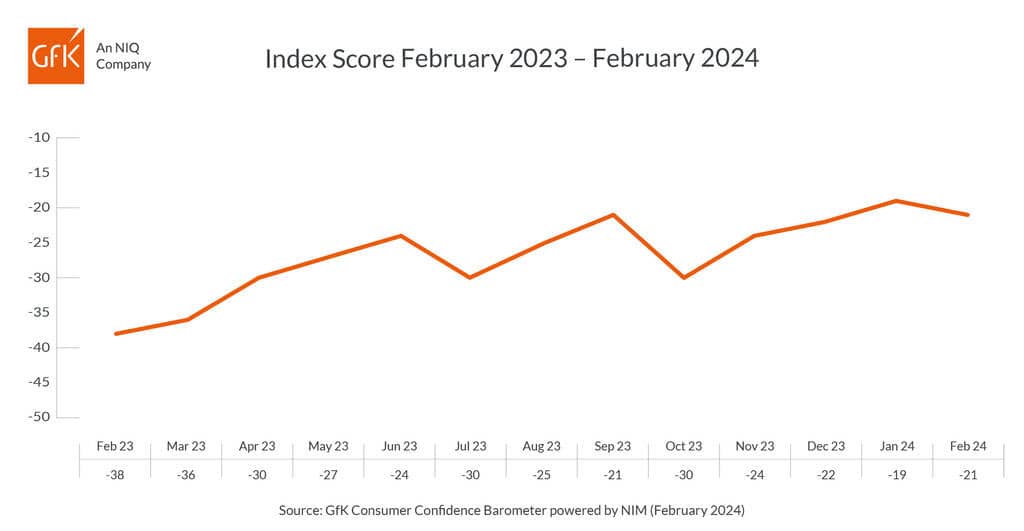Recovery in Consumer Confidence Stalls
- Written by: Gary Howes

Image © Adobe Images
GfK says UK consumer confidence fell in February, but a "stable outlook for future personal finances is encouraging."
The 50-year-old survey, which is considered the benchmark for consumer confidence measurement, has revealed an ongoing improvement in sentiment over the course of the past year from -38 in February 2023 to -21 in February 2024.
However, this was two points lower than January, which saw the index hit a two-year high.
"The bad news is that the improvement in the Overall Index Score seen over recent months stalled slightly in February due to a fall across most measures. However, the good news is that optimism for our personal financial situation for the next 12 months has not slipped back," says Joe Staton, Client Strategy Director at GfK.
The General Economic Situation component of the survey showed falls in both perceptions of the past year (-2) and the coming year (-3). The survey was conducted in the same month the ONS reported the economy slid into a technical recession in the second half of 2024.
"Consumer confidence will be crucial in determining how the UK's services economy fares in 2024," says Andrew Walker, the editor of UK casinos on Casinos.com.
The personal financial situation for the next 12 months remained static at 0 amidst ongoing real increases in wages amidst falling inflation.
"This is a significant improvement on the -18 score from February last year. This metric is key to understanding the financial mood of the nation because confident householders are more likely to spend despite the cost-of-living crisis," says Staton.
The GfK survey The highest value of the Overall Index Score – the headline score – was in January 1978, when it reached +21. It reached +16 twice in 1979 (first in July and again in September).
The lowest score recorded was -49 in September 2022, and other lows include -39 in July 2008, during the global financial crisis, and a score of - 35 in March 1990, in the lead-up to the 1990/1991 recession.




